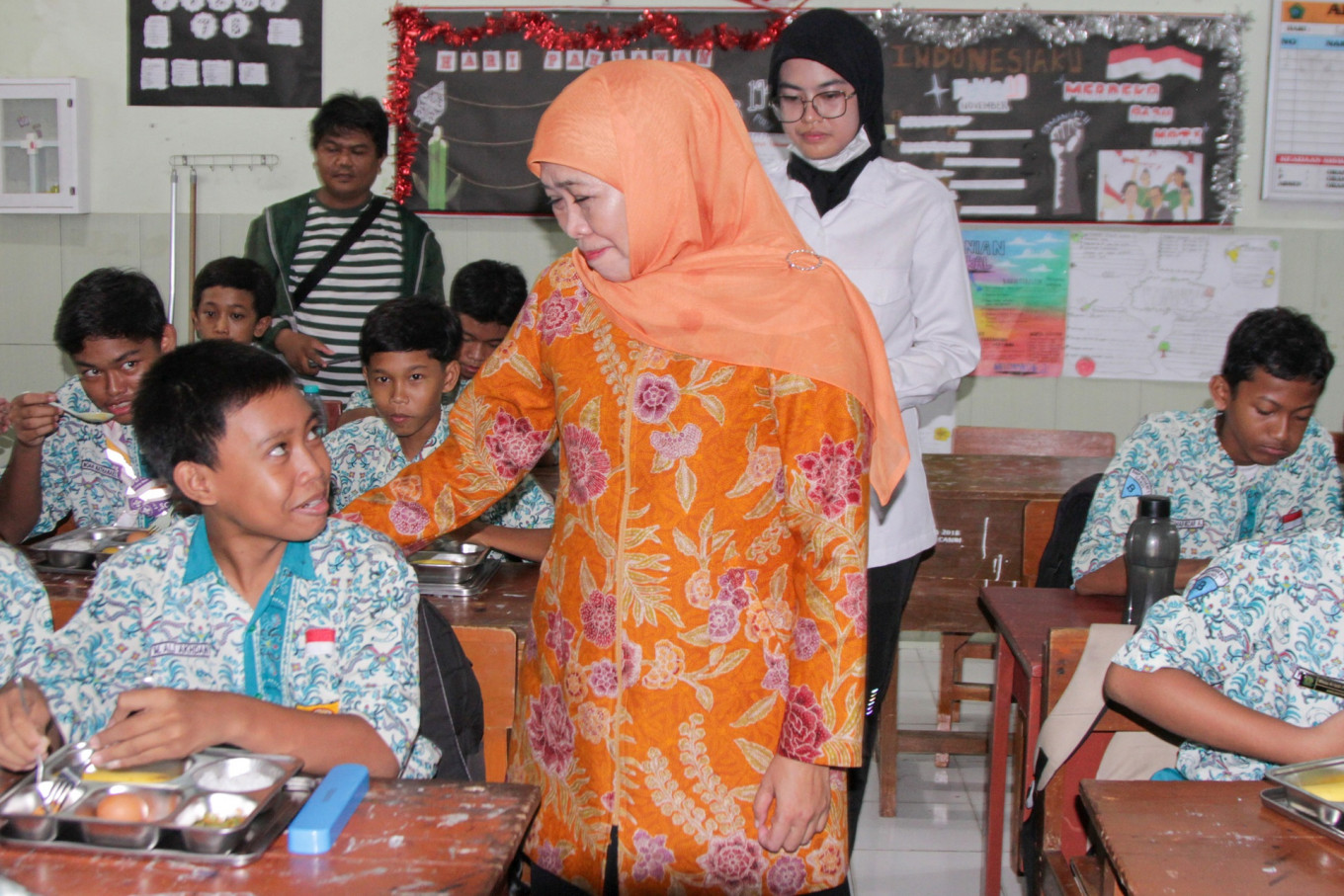
Cooperation in development cooperation refers to collective efforts among the parties committed to the relationship. (Shutterstock/File)
Development cooperation involves not only the tangible element of development funding from donor agencies, but also the intangible element of knowledge transfer to local implementing partners.
In order to achieve the collective development objectives and further ensure the sustainable impacts of development cooperation, both development agencies as grantors and their local implementing partners as grantees should rethink these elements and reformat the traditional concept of development cooperation into a more progressive concept of equal partnership.
Development cooperation is aimed at narrowing the gap between first- and third world countries to enable them to participate actively in the provision of international public goods and interests. In Indonesia, development cooperation has mushroomed as a result of political transformation ensuing from the 1998 reform era.
In social and political cooperation, the government is considered one of the elements to be transformed, thus leaving nonprofit and private actors as viable local implementing partners, with the latter being increasingly favored.
This shifting selection of local partners was first pointed out at the Fourth High Level Forum on Aid Effectiveness (HLF-4) of 2011 in Busan, South Korea.
As the post-2015 development agenda pushes development agencies to find the most appropriate local implementing partners to advance global priorities, there is growing concern that non-profit actors have not fulfilled general expectations, despite shared values or ideologies. The traditional relationship between development agencies and non-profit actors has often faced shortcomings in terms of alignment with set standards such as professional implementation management and accountable evaluation.
Due to its relatively young period of existence, local non-profit actors still struggle to manage their own organizations and implement programs professionally.
Meanwhile, donor organizations, under heightened scrutiny to deliver effective aid, want to ensure that their development programs are held to the highest standards by local partners.
This is an area in which private actors have been comfortably gaining ground, thanks to their arguably better abilities and capacities to accommodate grantors’ demands.
Eurodad estimated that in 2010, about €7.27 billion of public finance was invested in private companies operating in the poorest countries by the International Finance Cooperation, the European Investment Bank and six European bilateral aid programs.
Recognizing this shift, it is necessary to be critical of what is prompting the perception that private actors make better local partners compared to non-profit actors.
While most would argue that such preference boils down to performance quality in program implementation, a more constructive answer would emerge through looking at the mindset that characterizes relationship dynamics between development agencies and non-profit actors and further, from their respective perceptions of one another.
Private organizations, with their emphasis on professional and commercial standards, present a different mindset from non-profit actors.
In many development cooperations, non-profit actors perceive their position as merely to serve the demands of their grantors. Their tendency to remain passive in building their own capacity and in communicating their insights based on local wisdoms and context often leads to inadequate performance quality.
On the other hand, many development agencies often find themselves in a results-oriented mindset. Local partners are expected and required to deliver the targeted outcomes and thus perform optimally, regardless of their capacity to communicate their thoughts and insights.
It is vital to change the perceptions of both grantors and grantees toward their relationship to achieve the ultimate objective of ensuring sustained development impacts through development cooperation.
“Cooperation” in development cooperation refers to collective efforts among the parties committed to the relationship. Each party has elements to contribute to the relationship, and their commitment to the relationship should be bound by good communication and smooth coordination to yield a successful and effective partnership for achieving the desired common objectives.
The decision to change local partners as a short-term solution to ensure more up-to-standard implementation and evaluation needs to be reconsidered. Improving the institutional capacity of local implementing partners to align with the standards of aid effectiveness should be a long-term investment.
Development agencies need to focus more on supporting local implementing partners to improve their institutional capacity through technology transfers, knowledge sharing and capacity building.
Further, the relationship between development agencies and local implementing partners — two independent and sovereign parties — should be cooperative and non-hierarchical, bound by a common understanding of the targeted project impacts.
This will be more compatible with the ultimate goal of development cooperation to create equality around the globe.
Inneke Suhanda is the operations manager at Kiroyan Partners. She received her master’s degree from the University of Applied Sciences of Osnabrueck, Germany, with a concentration in development cooperation.
Source: The Jakarta Post, July 6, 2017, page 6.



